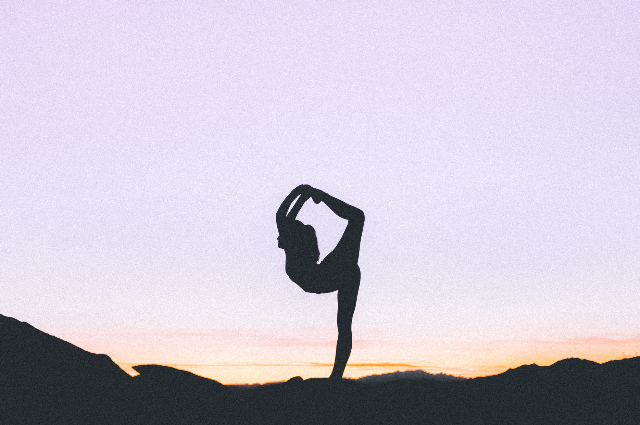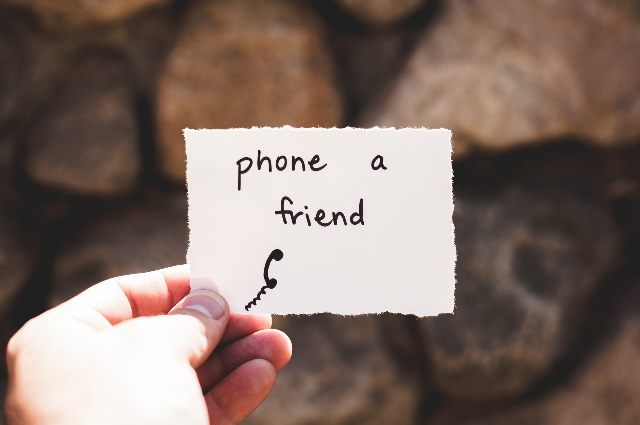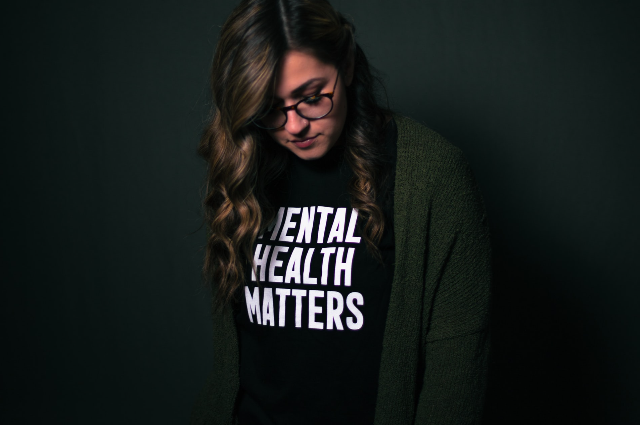
The COVID-19 pandemic has led to a great loss of human existence worldwide and presents an unprecedented challenge to general wellbeing. The monetary and social disruption caused by the pandemic is devastating as numerous people are at risk of falling into intense poverty and it is normal to feel pressured or overwhelmed at some point of unsure times. Physical distancing to the COVID‐19 outbreak can have adverse effects on the mental health. Emotions in response to uncertainty may additionally include anxiety, temper swings and anger whereas physical responses may include headache, fatigue and sleeplessness. Hence, all through this unheard of time, it’s necessary to take care of overall health, not just physical but also mental well-being.
Taking care of one’s physical well-being includes,
1. Maintain “physical” distancing but not “social” (interaction) distancing.
Social distancing has converted our social life, however that doesn’t imply we can’t continue to be in contact with our loved ones. One should stay home and keep a substantial distance of at least 6 feet from others but preserve social interactions with friends and family to avoid feeling isolated. Make use of the blessing in disguise called, technology to socialize with everyone without even violating social distancing policies. Let’s get back to the good old days and make use of this time to interact and share feelings.
2. Eat, Sleep, Exercise and Repeat.
Take a deep breath, count up to 10 and relax Keep a track of basics such as eating and sleeping habits. Drink plenty of fluids to stay hydrated and avoid the consumption of unhealthy snacks Good nutrition is always important, but during stressful times there’s nothing better than a tasty, wholesome, self-made meal. Fuel your body with the aid of consuming a healthy, well-balanced diet and drinking lots of water and intention to get seven to eight hours of sleep each night. Exercise daily, take deep breaths and stretch often. Taking 10 minutes or so to practice yoga can help produce a sense of calmness. Exercise and yoga help us to maintain physical health and mental wellness.

3. OMG! It’s an emergency.
Eventually, we may also experience the want to go away the house to select up groceries or medications. Whatever the emergency is make sure to physically distance yourself from others when you’re out. Leave the residence with caution and wear mask. Carry hand sanitizer, or if the shop has it, use it before touching anything. Wipe down the handles of surfaces of any item with disinfectant wipes. Don’t forget to wash palms fully with soap and water after returning home.
4. Keep checking on yourself.
If you ever feel symptomatic of any kind of illness, take prescribed medicines, decrease your fever and use petroleum jelly on sore skin to assist care for symptoms like cough, fever and muscle aches. Get additional rest to permit your body to entirely recover, physically and mentally.
5. Stay updated (and hydrated)
Enough of social media and saddening news. Take a break and drink water. It’s important to stay informed, however try and restrict your media consumption to a couple of times a day and use trusted news sources. Use Social Media carefully. False or misleading records spread like forest fire and just because you saw it on social media doesn’t mean it’s true. Rely upon professional sources like World Health Organization (WHO), the European Commission or trustworthy sources, for updates.
Taking care of one’s intellectual well-being includes,
1. Let us watch and read something fun maybe..?
Maybe there’s a film you’ve always wanted to watch or any book you’ve always desired to read? It’s time. Come out of the disheartening stuffs and give your mind a break with mood uplifting, fun activities.
2. Consult a Counselor
It is okay to feel overwhelmed, stressed, anxious or upset, amongst a broad range of different emotional reactions, in the present. Allow yourself time to observe and feel free to express what you’re feeling be it in form of making a list or making a diary or directly interacting with the counselor. Even if offices are closed during COVID, opt for virtual appointments. There is a wide range of measures to tackle stress and anxiety and take care of the mental well-being.

3. Do what makes “you” happy and prioritize “yourself.
Join your friends for a walk in the park following social distancing, cook your favorite meal, watch movies and participate in internships or contests. Practice yoga and meditation to relax your body and mind. Maintaining a diary or journal to jot down feelings and everyday happenings will help which is a patient listener.
4. Music Therapy and Keeping yourself involved (or distracted).
Music can make us feel so much better. Make a playlist with your fav songs and vibe. Learn something new, be it the guitar you always desired to play or the smooth French you always dreamt of speaking. Read books and keep yourself involved in something or the other and make use lockdown, in other terms what we call, “productivity.”
5. Work (healthy) from home:
Working from domestic looks cozy however it comes with its own set of challenges affecting the mental well-being of a person. In that case, confining your workspace to a specific place and controlling the sound with noise cancellation headphones or earbuds will be beneficial to cope up with stress. Put away all the digital appliances after work and relax and make sure to reduce the screen time to avoid stress on eyes or mental stress.

Physical and intellectual fitness are hence intertwined and self-care in the wake of the Coronavirus outbreak consists of focusing on things we can manipulate, like having proper hygiene and alternatively of those we cannot that is stopping the virus.
Take care of yourselves and stay safe.
